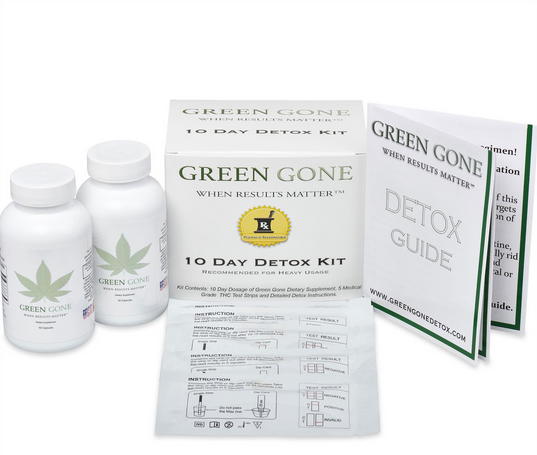
Delta-8 THC? What is that?
Sure, you’ve heard of THC. It’s one of the hundreds of cannabinoids in weed. And, when people talk about THC they’re usually talking about Delta-9-THC, the most abundant cannabinoid in cannabis. But, there’s another similarly named compound found in weed. It’s Delta-8-THC—and like its cannabinoid cousin it’ll also get you high.
Delta-8 occurs in the plant in very small concentrations. Most dried cannabis flower contains less than 1% of Delta-8. So the way to create a product, like an extract, containing a substantial amount of this cannabinoid, is via extraction. Isolation, conversion, and refinement of dried weed is the only other method.
Delta-8 is known to be a degraded form of THC. It isn’t directly produced by cannabinoid-synthesizing enzymes within the plant. When THC is stored for a period of time, it degrades into Delta-8. To develop greater quantities of this stuff commercial growers and extractors don’t sit around and wait for weed to degrade. They use selective breeding and concentrate it using molecular isolation. When concentrated, Delta 8 and Delta 9 interact with the nervous system similarly. So this raises the obvious question—what’s the difference in effect between Delta-8-and Delta-9-THC?
What’s the difference between Delta-8-THC and Delta-9-THC
Delta-8 differs from delta-9-THC. It’s actually an analog of Delta-9-THC. That means it has a similar molecule structure as Delta-9, but some notable differences. Some Reddit users have explained it’s effects as being more of a stone than high.
“It is much more of a body buzz without some of the anxiety/head-rush that is common with Delta-9 THC cannabis,” one mentioned.
It is great for medical and recreational use alike. Like Delta-9, it also delivers neuroprotective properties. It will also help with things like stimulating appetite, reducing nausea, and soothing pain. However, some say that it doesn’t deliver the paranoia and anxiety. That often comes from smoking traditional weed typically with high amounts of Delta-9.
A quick chemistry lesson
According to growersnetwork.org The delta part of the name refers to the double bond. So both Delta 8 and Delta 9 contain double bonds, the difference is where that double bond is located. Organic chemistry deals with carbon atoms – a lot of carbon atoms, chains of them. The “8” and “9” in the names refer to the location of that double (Delta) bond in the chain.
Delta 9 has a double bond on the 9th carbon in the chain, Delta 8 on the 8th. So, what this really boils down to is that a double bond is going to have more electrons than single carbon bonds. And will interact differently with the endocannabinoid system. It doesn’t seem like a big difference. But when we’re talking about subatomic particles, the location of that double bond can be very significant.
Is Delta-8 THC legal
Thanks to the 2018 US Farm Bill, It is federally legal if comes from hemp. Employ caution when consuming it in public, however. Similar to smoking hemp out in the wild, while it’s legal, LEO might not be able to tell the difference between a legal and illegal product.
Is delta-8 as good as THC?
Limited research exists on this compound specifically. Some studies suggest that it may have similar effects to Delta-9 THC. Things like pain relief, reduced anxiety, and improved appetite. However, users may need to consume more of Delta-8 THC to achieve the same level of psychoactive effects. That’s because it is generally less potent than Delta-9 THC.
Additionally, the effects of Delta-8 THC may vary depending on the individual. It may also vary based on the specific product consumed since it is not as well-studied and its effects are less predictable. Therefore, further research is necessary to fully understand the effects of this stuff and how it compares to Delta-9 THC. It is important to note that it is a psychoactive substance that can cause impairment. So it should only be used responsibly and under the guidance of a healthcare professional.
Overall, while it may have some potential benefits, more research is needed to fully understand its effects and how it compares to Delta-9 THC. It is important to note that Delta-8 THC is still a psychoactive substance and can cause impairment, so it should be used responsibly and only under the guidance of a healthcare professional.
Does delta-8 get you as high?
While it is generally less potent than Delta-9 THC, it still produces a high similar to that of Delta-9 THC, albeit milder. Delta-8 THC can produce feelings of euphoria, relaxation, and altered perception, and can enhance sensory experiences, much like Delta-9 THC.
The intensity of the high produced by Delta-8 THC can vary depending on several factors. They include the individual’s tolerance, the amount consumed, and the method of consumption. However, because Delta-8 THC is less potent than Delta-9 THC, users may need to consume more of it to achieve the same level of psychoactive effects.
It’s important to note that while Delta-8 THC can produce a high, it is still a psychoactive substance that can cause impairment and should be used responsibly and only under the guidance of a healthcare professional. Additionally, the effects of Delta-8 THC may be less predictable than Delta-9 THC due to the fact that it is not as well-studied, so caution should be exercised when using it.
Is delta-8 natural or synthetic?
Delta-8 THC (Δ8-THC) can be both naturally occurring and synthetic, depending on how it is produced. While Delta-8 THC is found in small amounts in some strains of cannabis, it is typically produced in larger quantities through a process of converting CBD (cannabidiol) into Delta-8 THC through chemical reactions.
The synthetic production of Delta-8 THC involves the use of chemical catalysts to convert CBD into Delta-8 THC. This process typically involves the use of solvents and other chemicals, and the resulting Delta-8 THC may contain impurities.
On the other hand, the natural production of Delta-8 THC occurs when Delta-9 THC degrades and converts into Delta-8 THC over time. This process can occur naturally in cannabis plants or in cannabis products that are stored for an extended period.
It’s important to note that the production of Delta-8 THC, whether natural or synthetic, can vary in quality and purity, and the effects of the compound may vary depending on the specific product consumed. Therefore, it is important to research the source and quality of Delta-8 THC products and to use them responsibly and only under the guidance of a healthcare professional.
What are the dangers of Delta 8?
While Delta-8 THC (Δ8-THC) has some potential benefits, there are also some potential risks and dangers associated with its use. Here are some of the possible dangers of Delta-8 THC:
- Impairment: Like Delta-9 THC, Delta-8 THC is a psychoactive substance that can cause impairment. It can affect cognitive function, reaction time, and other motor skills, which can impair the ability to drive or operate heavy machinery.
- Side effects: Delta-8 can cause side effects such as dry mouth, red eyes, and increased heart rate. It may also cause dizziness, nausea, and anxiety in some users.
- Lack of regulation: The Delta-8 market is not currently well-regulated, which means that there is a risk of products containing contaminants or inaccurate labeling.
- Legal status: Delta-8 exists in a legal gray area. While it is not explicitly listed as a controlled substance under federal law, some states have banned its sale and consumption.
- Unknown long-term effects: Because Delta-8 is a relatively new compound, its long-term effects are not yet fully understood. More research is needed to determine the potential risks and benefits associated with its use.
It’s important to note that while Delta-8 may have some potential risks and dangers, many of these can be minimized or avoided by using it responsibly and under the guidance of a healthcare professional. It’s also important to purchase Delta-8 products from reputable sources and to research the laws and regulations in your area before using them.
How long does delta-8 stay in your system?
The amount of time that Delta-8 THC (Δ8-THC) stays in the body can vary depending on several factors, including the amount consumed, the method of consumption, and the individual’s metabolism. However, there is limited research available on the pharmacokinetics of Delta-8 THC, so the exact duration of its effects and how long it stays in the system is not yet fully understood.
Based on what is currently known about Delta-8, it is believed to have a shorter half-life than Delta-9 THC, which means that it may be eliminated from the body more quickly. However, there is no precise timeline for how long Delta-8 THC stays in the system because its metabolism and elimination may vary depending on the individual.
Some studies suggest that Delta-8 THC may be detectable in urine for up to 48 hours after use, although this can vary depending on several factors. It’s also possible that Delta-8 THC could be detected in blood, saliva, or hair samples, although there is limited research available on this topic.
It’s important to note that Delta-8 is a psychoactive substance that can cause impairment, and it should be used responsibly and only under the guidance of a healthcare professional. Additionally, the effects of Delta-8 THC may be less predictable than Delta-9 THC due to the fact that it is not as well-studied, so caution should be exercised when using it.
Will Delta-8 cause you to fail a drug test
Yep. Because urine screens look for the presence of a THC metabolite, not the presence of active Delta-9 or Delta-8. So Delta-8 presents the same challenges regarding drug testing becuase it shows up just as easily as ordinary ol’ Delta-9-THC.
How to pass a drug test if you consume Delta-8 THC
First, purchase an at-home drug test from Amazon. Next, test yourself to see if you’re even at risk of failing. If you do fail, your next step is to stop consuming Delta-8. Stop long enough for your body to process it out. How long does that typically take? Well, it usually takes about three to four weeks. Time will vary by person depending on the speed of their metabolism and how much they’ve consumed.

If you don’t have time to spare your best bet is to use a THC detox product. We always recommend Green Gone Detox. It’s an all-natural permanent THC cleanse. It’s not ike THC detox drinks. They are typically “masking” agents—meaning they don’t physically pull THC metabolites out of your system permanently. Instead they decrease the concentration of metabolites found in your urine for a brief period through dilution.
Sometimes the dilution method is enough to work. But if you’re a heavy user don’t count on it. A permanent THC detox is what you need. It’s really the only way to increase your body’s output. It’s also aids in the elimination of the THC metabolites that’ll cause you to fail.
If you’ve ever failed a drug test for Delta-8, please tell us about your experience in the comments below.
Leave a Reply